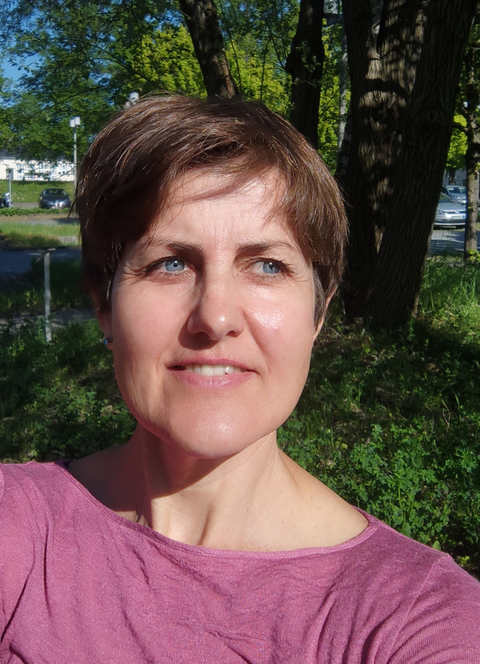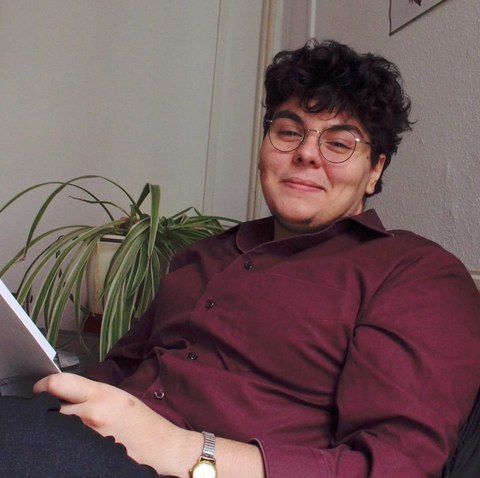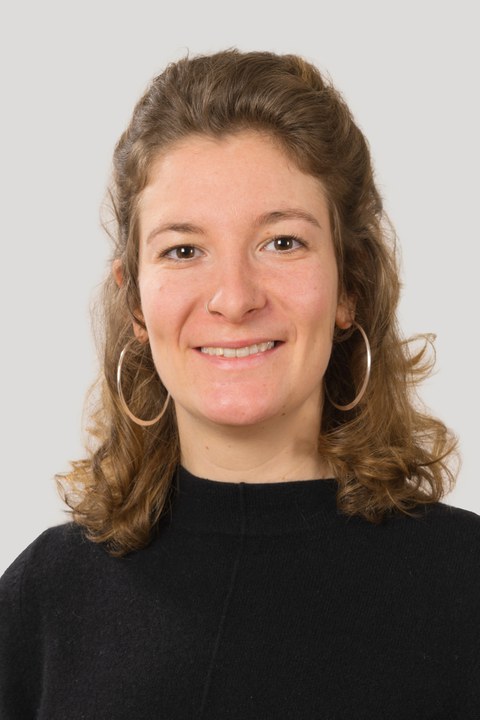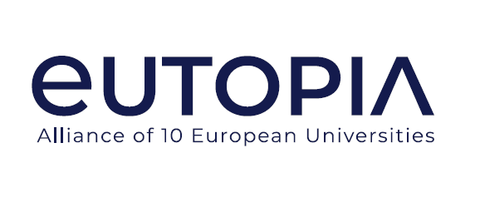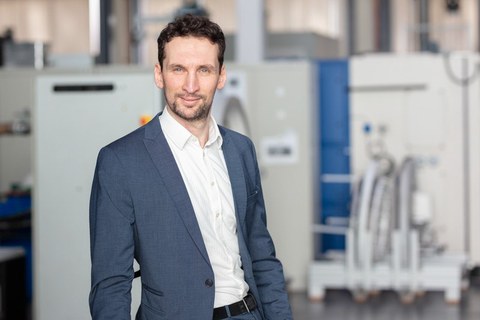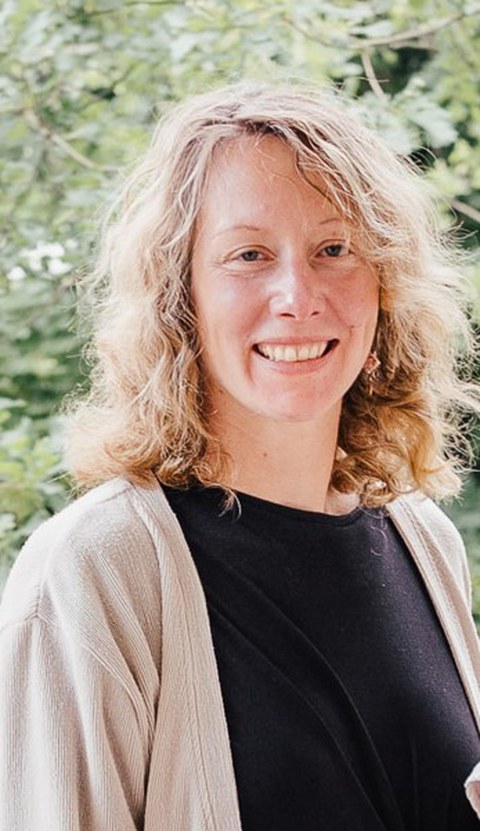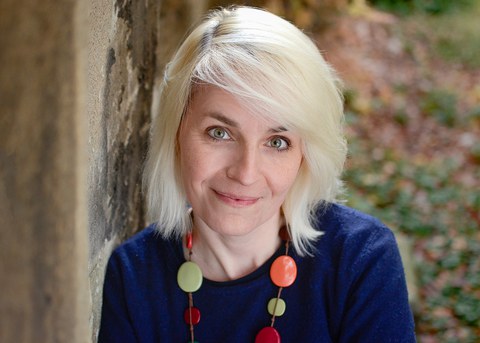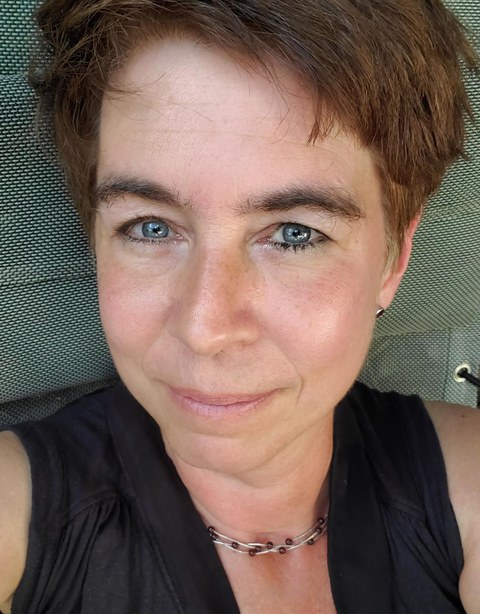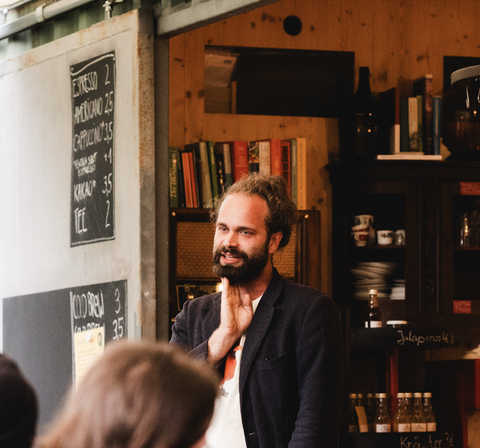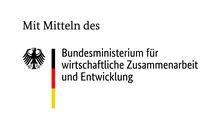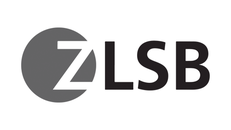TUD Global Citizenship Lab
Table of contents
The TUD Global Citizenship Lab is the mandatory introductory course of the TUD Global Citizenship Certificate (short: GCC) in the Knowledge module.
It has been funded by the Federal Ministry of Research, Technology and Space (BMFTR) and the Free State of Saxony as part of the Excellence Strategy of the Federal and State Government.
It is also a joint offer, e. g. in close collaboration with the Center for Teacher Education, School and Vocational Education Research (ZLSB) during the summer term 2024 within the state initiative ESD SDG 4 - Education for Sustainable Development (ESD) in university teacher training in Saxony, supported by Engagement Global with funds from the Ministry for Economic Cooperation and Development.
In the winter term 2025/2026, the Global Citizenship Lab will be offered as a collaborative event between the TUD Global Citizenship Certificate program and the Philipp Schwartz Initiative at TUD for researchers at risk. It is open to all interested TUD members, including (exchange) students, doctoral candidates, fellows of the Philipp Schwartz Initiative, scholars and staff.
Dates
The TUD Global Citizenship Lab will, as far as possible, be offered each semester. It is up to you to schedule your attendance. However, we recommend that you attend the event at the beginning of your participation in the GCC program to get a good orientation and to join a supportive network of like-minded and committed people from TU Dresden and local civil society.
The next TUD Global Citizenship Lab under the motto "Global Citizenship in Times of War and Crisis – Navigating Conflict, Reshaping Peace" in winter semester 2025/2026 will take place as a two-day block event (1 ECTS via studium generale) on
- Friday, January 30, 2026, 9 am - 5 pm
- Saturday, January 31, 2026, 9 am - 6 pm
at the COSMO-Wissenschaftsforum, Schlosstraße 2 (at the Altmarkt) in Dresden.
Target Group: The event is open to GCC program participants, fellows of the Philipp Schwartz Initiative, and other interested TUD members, including (exchange) students, doctoral candidates, researchers, and staff.
Enrolment takes place via OPAL. The enrolment deadline is on June 15, 2026
Programs of past TUD Global Citizenship Labs
Program TUD Global Citizenship Lab Summer term 2025
Friday, June 13, 2025
You can find the exact schedule (including information on the start and end of the two workshop days) in our OPAL course.
Workshop: „Sustainability challenge!“
We live in unprecedented times. In this current ‘Anthropocene’ era, human activity is undermining the planetary systems on which we all depend, with disastrous and unpredictable results. Education has a unique role to play in helping people to understand the values, beliefs, and behaviours which drive unsustainability, and to explore alternative ways of seeing, thinking, and acting in the world, individually and collectively. This one-day workshop is designed to develop participants' competencies for sustainability (e.g., Brundiers et al., 2021; Bianchi et al., 2022). Through participation in interactive, creative, and critical activities, participants will experience a reflective-action process related to a sustainability challenge of their choice. Key themes include: personal identities and values, sustainability definitions and perspectives, sustainability issues and their local and global roots and impacts; sustainable futures, and feasible and impactful actions. Learn how to find your framework for action with our renowned speakers Dr. Rachel Bowden, Flor de Matos and Sita Buchberger.
Dr. Rachel Bowden is a research associate at the Centre for Teacher education and education research, where she coordinates the Erasmus+ Teacher Academy-Teaching Sustainability and the state-level ESD initiative “SDG 4: ESD in university teacher education in Sachsen”. Before coming to Germany, Rachel lived and worked in Malaysia, Sri Lanka, Nepal, India and Nicaragua among other places.
Flor de Matos (they/them) is an educator and youth worker, passionate about diversity and inclusion. Their work is applied in several fields across art, culture, social, and environmental actions, with a main focus on creating safe spaces for people to grow together.
Currently, they are involved with CAMBIO e.V. under a Federal Volunteering Service (BFD) where they develop educational projects in international contexts as well as local actions, this includes initiatives supported by Erasmus+ and European Solidarity Corps programs.
As a Global Learning and Education for Sustainable Development (ESD) facilitator in Saxony, Sita Buchberger supports educators and multipliers in exploring topics such as the UNESCO Sustainable Development Goals, global justice, sustainability, gender equity, and postcolonial perspectives.
Additionally, she is part of the Eine Welt-Promotor*innen program operated by arche noVa – Initiative für Menschen in Not e.V.
She believes in shaping a just and sustainable future together — starting from local experiences and reflecting on our roles in global contexts.
Saturday, June 14, 2025
Short introduction to the TUD Global Citizenship Certificate program
The GCC team will give you a comprehensive overview of the TUD Global Citizenship Program, how it benefits you as well as the requirements for your participation. Afterwards, you will have the opportunity to ask questions about the program.
Online Short Introduction to EUTOPIA Certificate of Internationalisation and UNESCO Stories Circles
Our guest Lewis Beer from the European University Alliance EUTOPIA, who works at the University of Warwick, will give you a brief introduction to a GCC partner program: the EUTOPIA Certificate of Internationalization (EUCI). In addition, Werner de Wit (Stellenbosch University, South Africa) is going to share an inspiring method to foster respectful and goal-oriented interaction with people in a global context, the UNESCO Story Circles. You will learn how to approach others without prejudice and be aware of existing bias.
Pitch session and panel discussion “Partnership and Participation & Engagement”
The TUD Global Citizenship Lab’s motto this summer semester is: “Global Citizenship Education - Partnership and Participation”. In order to show you how partnership and participation are lived not only in civic society, but also in an academic and voluntary context, we have invited interesting guests to a pitch round followed by a discussion. You will have the opportunity to learn more about our guests, their work, and motivation as well as gather inspiration for your own voluntary work (as part of your participation in the GCC program or in your free time).
Dr. Sebastian Spitzer is a researcher at the Institute of Lightweight Engineering and Polymer Technology (ILK) at TU Dresden, where he focuses on the development of innovative lightweight structures for future mobility and energy applications. Until April 2024, he led the Lightweight Design Group at ILK before taking over the professorship for Lightweight Design at the University of Rostock for one year. In April 2025, he returned to TU Dresden to continue his research on advanced materials and sustainable engineering solutions.
His interest in Asia began with a study stay at Tohoku University in Japan in 2009 and has since evolved into a strong academic collaboration with South Korea. Since 2015, he has been working closely with Dr. Soon Ho Yoon from the Korea Institute of Science and Technology (KIST) in Jeonbuk. Together, they carry out joint research projects, co-author publications, and promote student exchange between Germany and Korea. Dr. Spitzer actively contributes to TU Dresden’s National Network Korea and exemplifies how engineering cooperation can foster global understanding and responsible innovation.
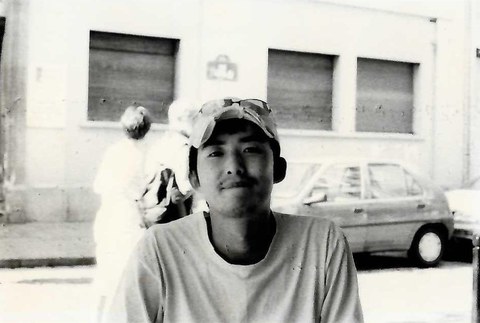
Dr. Soon Ho Yoon
Dr. Soon Ho Yoon is a senior researcher at the Korea Institute of Science and Technology (KIST) in Jeonbuk, where he leads research on advanced composite structures for next-generation mobility systems. He earned his PhD at the Korea Advanced Institute of Science and Technology (KAIST) in Daejeon. His research focuses on the development and optimization of lightweight composite components and structures for electric and hydrogen vehicles, ships, urban air mobility, and aerospace systems. He also works on novel design methodologies and simulation tools that integrate multiphysics phenomena and leverage artificial intelligence and machine learning.
In 2015, Dr. Yoon spent a year at the Institute of Lightweight Engineering and Polymer Technology (ILK) at TU Dresden, where he established a strong professional and personal partnership with Dr. Sebastian Spitzer. Today, they are the principal coordinators of the ongoing collaboration between KIST and TU Dresden. Together, they promote academic exchange, mutual research visits, and the joint development of new research topics that bridge Korea and Germany in the field of advanced lightweight technologies.
Charlotte Müller works for the volunteering agency ehrensache.jetzt. The agency is a project of Dresden’s Community Foundation Bürgerstiftung Dresden. It is an information centre for non-profit organisations and all Dresden residents who want to volunteer. The team at the agency advises people who would like to volunteer. It gives information about the wide range of volunteering opportunities in Dresden and helps to find a matching volunteering position. The agency's main tool is their online platform, which was launched in Dresden in 2019. The volunteering agency also offers personal counselling on all aspects of volunteering. In addition, it organises various projects and events on the topic of volunteering in Dresden. For example, the annual “Ehrenamtsbörse”, a fair where non-profit organisations can present themselves.
Kristina Krömer completed her studies in political science, sociology and peace/conflict studies in Marburg. Since graduating, she has been researching ways of establishing democracy as a way of life and developing it further. With metro_polis, she uses the everyday space of the tram/train as a dynamic agora (Greek: central market place) and discusses the challenges of our time with passengers: controversially and yet constructively.
Workshop: Democracy work in everyday life – learnings from the "metro_polis" project and exercises
metro_polis takes place where society gathers daily: in trams. In discussions with 12,000 passengers, the project has found answers to the following questions:
- How can people of different backgrounds and attitudes be brought into contact with each other?
- How can social controversies be discussed in a way that the exchange does not divide but unites?
- How can complex political issues be presented in a way that truly enables broad participation?
In the workshop, we will discuss the experiences from the metro_polis project and practice facilitating democratic discourse between strangers.
Speaker: Kristina Krömer, Project metro_polis, winner of the German Volunteering Award 2023)
Workshop: All of us... – Performative methods for transcultural exchange
An equal exchange at eye level, listening to each other, and taking the skills and biographical narratives of others seriously are prerequisites for participation and social exchange.
In this workshop, we are going to playfully explore performative research and communication methods that can be used in public spaces and in transcultural contexts.
Katja Heiser has been working for many years as a theater maker as well as an artist committed to cultural work on and off the stage. The starting point for her creative production, directing, and screenwriting work are the expertise, personal experiences, and biographical narratives of those involved, which are transformed into a theatrical or performative form for the stage. Additionally, she focuses on performative research and communication methods in public space and in transcultural contexts. She is passionate about developing and testing playful formats of encounters as well as voicing opinions in different contexts.
Workshop: Placemaking at Alten Gärtnerei – Applied Transformation
Challenges arising from the current need for transformation must be negotiated, tried out, and put into practice. We have been doing this at Alte Gärtnerei in Dresden-Pieschen since 2019, transforming the formerly abandoned horticultural land into a promising place with a future, focusing on healthy ecology as well as local people. We're navigating to manage combining changes in the way food is being produced with good food, productivity with aesthetics, educational ambition with quality of life.
During an explorative tour of the premises, you will get to know your own points of interest as well as the place itself. Insights into the modules and history of the project repeatedly bridge our initial conceptual considerations on the one hand and the numerous practical experiences on the other. Is it now a made place?
Afterwards, there will be plenty of space for any questions you may still have.
Sebastian Kaiser is a permaculture designer, founding member, and co-director of Alte Gärtnerei in Dresden-Pieschen.
Besides the ever-continuous gardening and making of the place itself, his work is driven by considerations of urban development, spatial justice in mobility, aesthetics and the good life as well as Italian cuisine.
Topics and key questions of each Lab
- What is Global Citizenship Education (GCED)?
- Why is it relevant for my future?
- What does SDG 4 exactly mean in terms of ensuring inclusive and equitable quality education and promoting lifelong learning opportunities for all?
- Why should I contribute to achieving this goal?
- How to become or be a global citizen in this challenging, highly interconnected, and crisis-ridden time?
- What opportunities, challenges, networks, realities, and creative spaces can I embrace if I get involved?
- As a prospective graduate of the TUD – a global university with strong local roots – how can I acquire the knowledge, experiences, mindset, and skill set of a global citizen in addition to my academic studies?
-
We will reflect on and explore these questions together in the TUD Global Citizenship Lab, with input and insights from numerous partners, experts, and activists of both academia and civil society.
Methodology and languages
In addition to knowledge acquisition in a cognitive way, the lab focuses on social-emotional learning in the group, sharing of experiences, and experiential learning (e.g. gardening for sustainability, cooking together with rescued food). The participants and experts will learn from each other. A wide range of opportunities to get involved will be demonstrated through authentic insights into practice. At the end of the two-day event, participants will draw up their roadmap for becoming a global citizen, supported by a committed community of like-minded people.
The event will be conducted at a multilingual level in German and English, complemented by additional languages of the participants.
Credit for TUD Global Citizenship Certificate
By successfully participating in the TUD Global Citizenship Lab, participants will accomplish a central component of the certificate program.
We recommend that participants register for the GCC program right away. After the registration, the GCC modules can be completed at your own pace during your undergraduate, postgraduate, or doctoral studies.
Requirements for participation
The event is open to all enrolled TUD students, including doctoral and exchange students. Student teachers are also welcome! No previous knowledge is necessary. In the winter term 2025/2026 it also welcomes all interested TUD members, including (exchange) students, doctoral candidates, fellows of the Philipp Schwartz Initiative, scholars and staff.
Participants should bring openness and curiosity towards Global Citizenship Education and social engagement as well as the willingness to learn respectfully and at eye level with peers and experts, to reflect and to test what they have learned through practical exercises. Registration for the TUD Global Citizenship Certificate certification program is desirable. However, participation in the program is not a prerequisite for taking part in the Global Citizenship Lab.
How and when can you register?
Registration for the TUD Global Citizenship Lab is currently done via studium generale. You will also find the link to register for the event via OPAL.
If all places (max. 40) are already taken, you can be put on the waiting list for the course in the next semester. Please get in touch with GCC team at TU Dresden.
Would you like to join an engaged global community and earn the TUD Global Citizenship Certificate? Then register for the program here!
Who can you contact if you have questions?
If you have any questions about the program or need help with registration, you can contact the TU Dresden GCC team. We will be happy to help and support you!
Funded by the Federal Ministry of Education and Research (BMBF) and Free State of Saxony under the Excellence Strategy of the Federal Government and the Länder


